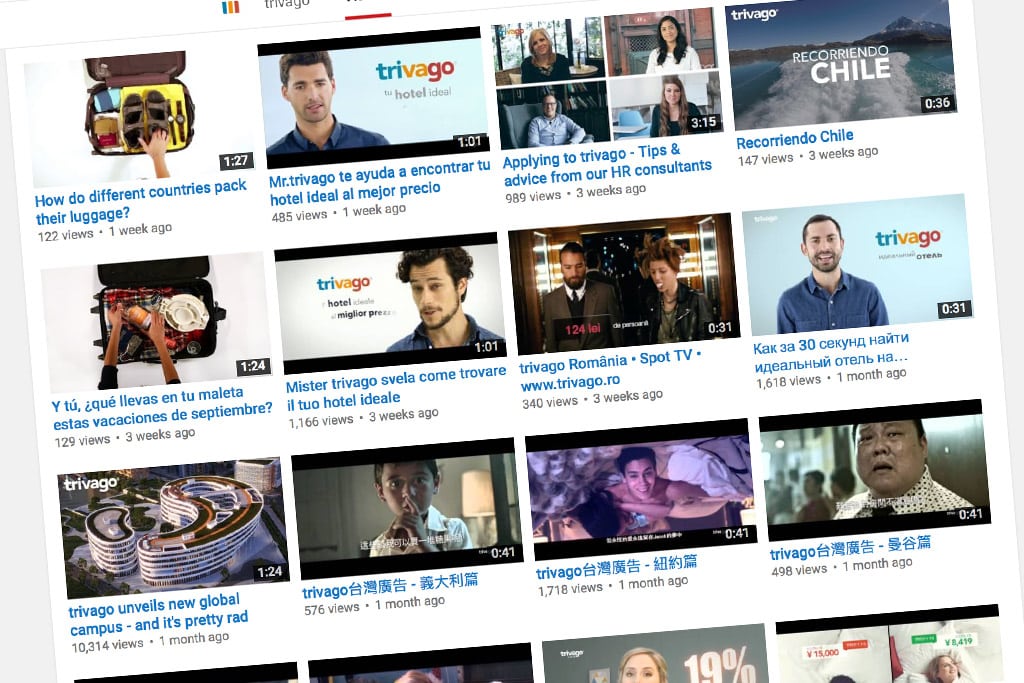Skift Take
Overall, the initial day of trading amounted to a modest success for Trivago. Its founders made a bundle, it generated a couple of hundred million dollars for expansion, and its valuation crossed the $4 billion threshold -- even though it had hoped for much more and was undoubtably disappointed about the manner in which it debuted. This is a long game; verdicts now are meaningless.
Trivago’s stock, trading under the symbol TRVG, had a modest opening day on its first day getting bought and sold on Nasdaq in New York, finishing up 7.73 percent at $11.85 per share.
What should Trivago’s valuation be? Investors decided it should be around $4 billion, compared with rival TripAdvisor’s $6.87 billion, for instance. But Friday was only day one of Trivago’s standalone, publicly traded journey.
The bankers handling the initial public offering, which priced at $11 per share on Thursday and opened at $11.20 on Friday, had hoped to have Trivago’s stock debut in the $13 to $15 per share range but started out lower so they could generate the demand they needed.
In the end — or the beginning, that is, of the company’s publicly traded life — Trivago raised $184 million in net proceeds, excluding the the take for the owners and paying the bankers, that it can use for general corporate purposes, marketing, platform enhancements, and mergers and acquisitions to grow.
“Basically, bankers needed to downsize and lower the valuation to make the supply and demand work,” one analyst said.
The hotel-metasearch site, headquartered in Germany and still controlled by Expedia Inc., as it has been pre-IPO for the past several years, sold around 26.1 million shares, fewer than the planned 28.5 million. Expedia didn’t sell any of its shares and still owns about 62 percent of Trivago’s shares.
Some investors questioned whether Trivago was spending too much on marketing — 88 percent of revenue — and when it could tamp down its TV advertising to generate profits, which it has avoided in favor of expansion in markets such as Germany, Italy, Spain, France, Australia and the U.S.
Skift also questioned whether the brand awareness numbers in the U.S., for example, that Trivago touted during its IPO road show were realistic.
Observers shouldn’t make too much out of how Trivago’s shares traded on the first day, which in the big picture, matters little.
Some investors were cautious about the offering and the Motley Fool explained why: “Trivago also operates at a net loss, and I’d imagine that trend will continue. Hotel booking is a tough, competitive segment, with Priceline already commanding a huge chunk of the market, and Trivago will surely feel the need to keep up its brand recognition through marketing. We shouldn’t expect that ad spend to go down, and these expenses will continue to hamper profitability.”
The pressure will mount on Trivago officials from quarter to quarter now that it is a public company and this potentially could hamper the way it has chosen to grow — through massive TV advertising.
Still, that $184 million in net proceeds will fund a lot more marketing.
The Daily Newsletter
Our daily coverage of the global travel industry. Written by editors and analysts from across Skift’s brands.
Have a confidential tip for Skift? Get in touch
Photo credit: Hotel-search site Trivago will have more to spend on advertising like this after its shares debuted on Nasdaq with a $4 billion market cap at the end of the first day of trading. Trivago
